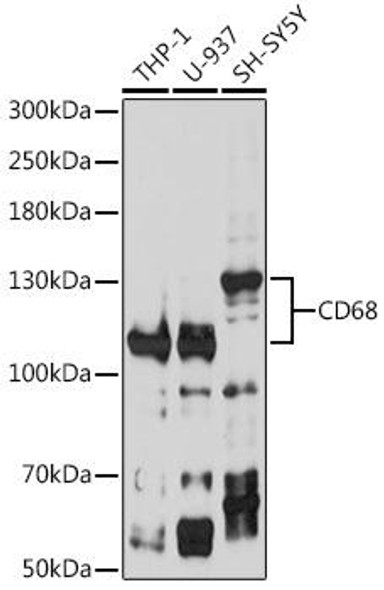Description
Anti-CD68 Antibody (CAB13286)
The CD68 Polyclonal Antibody (CAB13286) is a valuable tool for researchers studying CD68, a protein primarily found on the surface of macrophages and other phagocytic cells. This antibody, developed in rabbits, exhibits high reactivity with human samples and has been validated for use in Western blot applications. By binding specifically to the CD68 protein, it enables accurate detection and analysis in various cell types, making it ideal for investigations in immunology and cancer research.CD68 plays a crucial role in immune response and inflammation regulation, making it a key target for studies on diseases such as cancer, autoimmune disorders, and inflammatory conditions.
The antibody's ability to detect and analyze CD68 levels provides researchers with a powerful tool to explore its functions and potential therapeutic applications in these contexts. Overall, the CD68 Polyclonal Antibody is an essential resource for researchers seeking to deepen their understanding of immune regulation and disease pathogenesis.
| Antibody Name: | Anti-CD68 Antibody |
| Antibody SKU: | CAB13286 |
| Antibody Size: | 20uL, 50uL, 100uL |
| Application: | WB IHC IF |
| Reactivity: | Human, Mouse, Rat |
| Host Species: | Rabbit |
| Immunogen: | Recombinant fusion protein containing a sequence corresponding to amino acids 22-319 of human CD68 (NP_001242.2). |
| Application: | WB IHC IF |
| Recommended Dilution: | WB 1:500 - 1:2000 IHC 1:50 - 1:200 IF 1:50 - 1:200 |
| Reactivity: | Human, Mouse, Rat |
| Positive Samples: | Raji, THP-1, U-937, RAW264.7, Mouse liver, Rat liver |
| Immunogen: | Recombinant fusion protein containing a sequence corresponding to amino acids 22-319 of human CD68 (NP_001242.2). |
| Purification Method: | Affinity purification |
| Storage Buffer: | Store at -20'C. Avoid freeze / thaw cycles. Buffer: PBS with 0.02% sodium azide, 50% glycerol, pH7.3. |
| Isotype: | IgG |
| Sequence: | NDCP HKKS ATLL PSFT VTPT VTES TGTT SHRT TKSH KTTT HRTT TTGT TSHG PTTA THNP TTTS HGNV TVHP TSNS TATS QGPS TATH SPAT TSHG NATV HPTS NSTA TSPG FTSS AHPE PPPP SPSP SPTS KETI GDYT WTNG SQPC VHLQ AQIQ IRVM YTTQ GGGE AWGI SVLN PNKT KVQG SCEG AHPH LLLS FPYG HLSF GFMQ DLQQ KVVY LSYM AVEY NVSF PHAA QWTF SAQN ASLR DLQA PLGQ SFSC SNSS IILS PAVH LDLL SLRL QAAQ LPHT GVFG QSFS CPSD RS |
| Gene ID: | 968 |
| Uniprot: | P34810 |
| Cellular Location: | Cell membrane, Endosome membrane, Lysosome membrane, Single-pass type I membrane protein, Single-pass type I membrane protein |
| Calculated MW: | 31kDa/34kDa/37kDa |
| Observed MW: | 80-130KDa |
| Synonyms: | CD68, GP110, LAMP4, SCARD1 |
| Background: | This gene encodes a 110-kD transmembrane glycoprotein that is highly expressed by human monocytes and tissue macrophages. It is a member of the lysosomal/endosomal-associated membrane glycoprotein (LAMP) family. The protein primarily localizes to lysosomes and endosomes with a smaller fraction circulating to the cell surface. It is a type I integral membrane protein with a heavily glycosylated extracellular domain and binds to tissue- and organ-specific lectins or selectins. The protein is also a member of the scavenger receptor family. Scavenger receptors typically function to clear cellular debris, promote phagocytosis, and mediate the recruitment and activation of macrophages. Alternative splicing results in multiple transcripts encoding different isoforms. |
| UniProt Protein Function: | CD68: Could play a role in phagocytic activities of tissue macrophages, both in intracellular lysosomal metabolism and extracellular cell-cell and cell-pathogen interactions. Binds to tissue- and organ-specific lectins or selectins, allowing homing of macrophage subsets to particular sites. Rapid recirculation of CD68 from endosomes and lysosomes to the plasma membrane may allow macrophages to crawl over selectin-bearing substrates or other cells. Belongs to the LAMP family. 2 isoforms of the human protein are produced by alternative splicing. |
| UniProt Protein Details: | Protein type:Cell surface; Membrane protein, integral Chromosomal Location of Human Ortholog: 17p13 Cellular Component: membrane; lysosomal membrane; plasma membrane; integral to membrane; endosome membrane |
| NCBI Summary: | This gene encodes a 110-kD transmembrane glycoprotein that is highly expressed by human monocytes and tissue macrophages. It is a member of the lysosomal/endosomal-associated membrane glycoprotein (LAMP) family. The protein primarily localizes to lysosomes and endosomes with a smaller fraction circulating to the cell surface. It is a type I integral membrane protein with a heavily glycosylated extracellular domain and binds to tissue- and organ-specific lectins or selectins. The protein is also a member of the scavenger receptor family. Scavenger receptors typically function to clear cellular debris, promote phagocytosis, and mediate the recruitment and activation of macrophages. Alternative splicing results in multiple transcripts encoding different isoforms. [provided by RefSeq, Jul 2008] |
| UniProt Code: | P34810 |
| NCBI GenInfo Identifier: | 147744552 |
| NCBI Gene ID: | 968 |
| NCBI Accession: | P34810.2 |
| UniProt Secondary Accession: | P34810,Q53HR6, Q53XI3, Q96BI7, B4DVT4, |
| UniProt Related Accession: | P34810 |
| Molecular Weight: | 354 |
| NCBI Full Name: | Macrosialin |
| NCBI Synonym Full Names: | CD68 molecule |
| NCBI Official Symbol: | CD68 |
| NCBI Official Synonym Symbols: | GP110; LAMP4; SCARD1 |
| NCBI Protein Information: | macrosialin; CD68 antigen; macrophage antigen CD68; scavenger receptor class D, member 1 |
| UniProt Protein Name: | Macrosialin |
| UniProt Synonym Protein Names: | Gp110; CD_antigen: CD68 |
| Protein Family: | Macrosialin |
| UniProt Gene Name: | CD68 |
| UniProt Entry Name: | CD68_HUMAN |

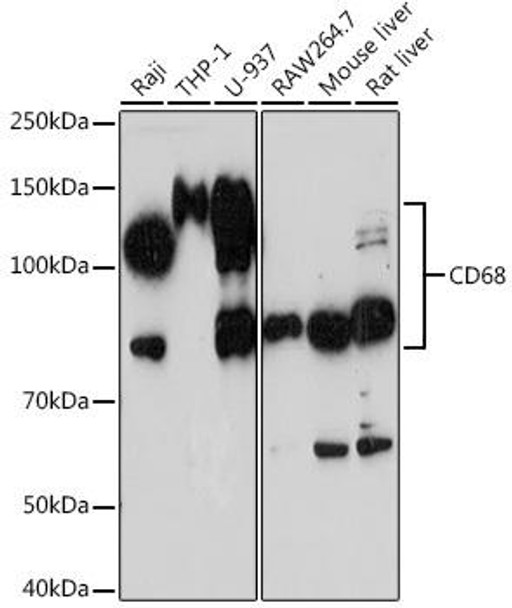
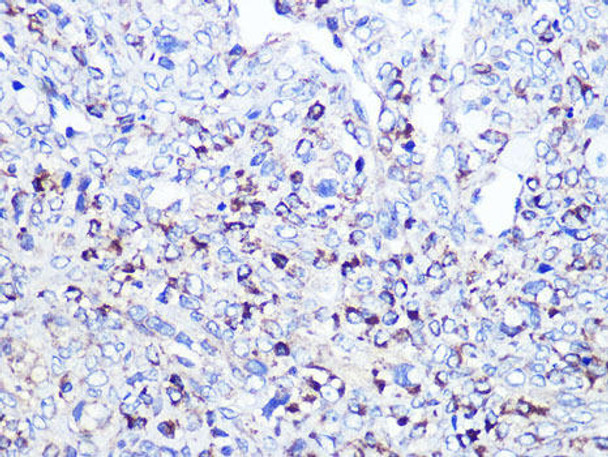
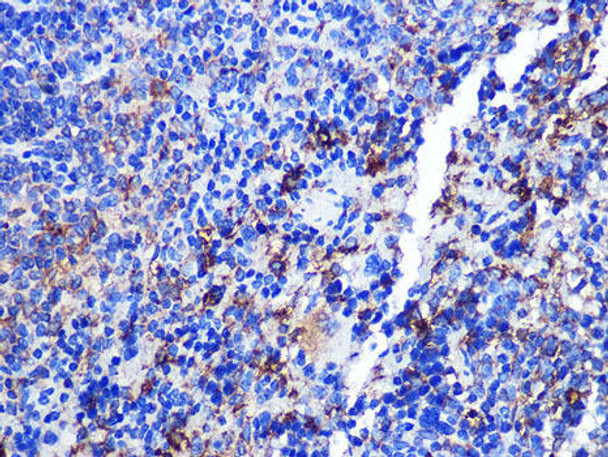







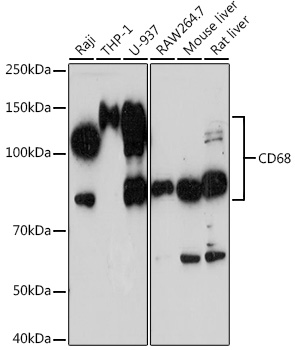
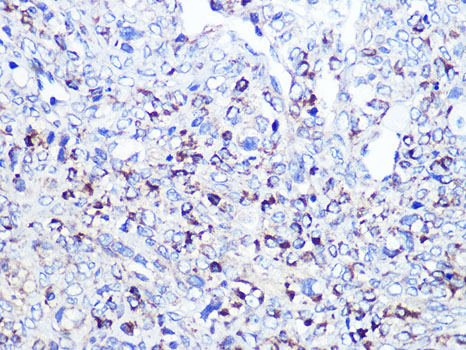
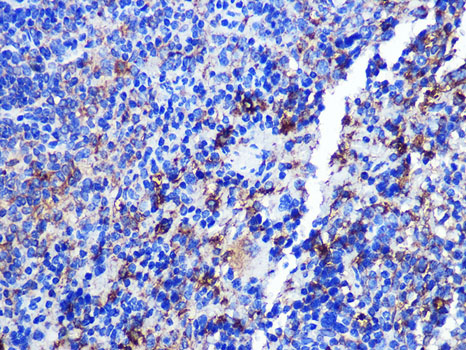
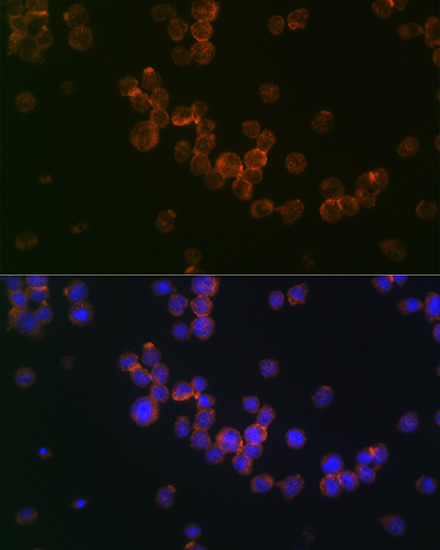
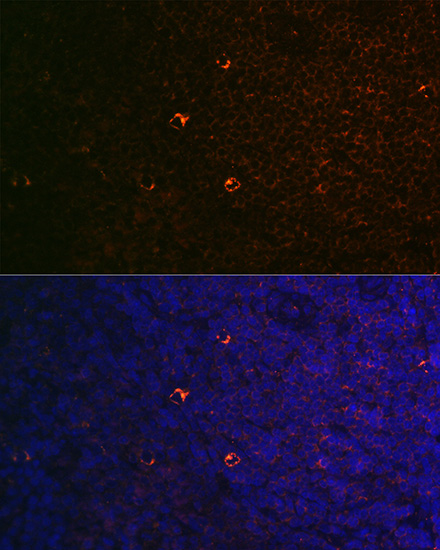





![GenieFluor 488 Anti-Human CD68 Antibody [Y1/82A] (AGEL3313) GenieFluor 488 Anti-Human CD68 Antibody [Y1/82A] (AGEL3313)](https://cdn11.bigcommerce.com/s-h68l9z2lnx/images/stencil/590x590/products/221434/606191/geniefluor-488-anti-human-cd68-antibody-y182a-agel3313__64176.1707497231.jpg?c=2)
![GenieFluor 647 Anti-Human CD68 Antibody [Y1/82A] (AGEL3314) GenieFluor 647 Anti-Human CD68 Antibody [Y1/82A] (AGEL3314)](https://cdn11.bigcommerce.com/s-h68l9z2lnx/images/stencil/590x590/products/221435/607316/geniefluor-647-anti-human-cd68-antibody-y182a-agel3314__53489.1707500815.jpg?c=2)
